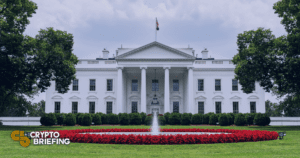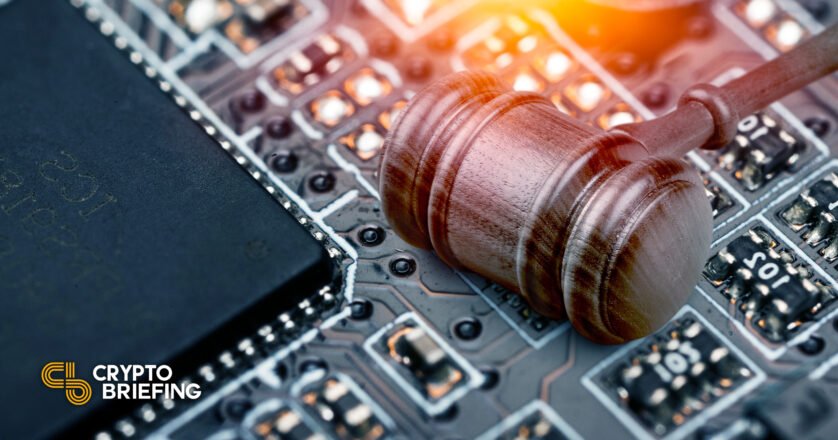Key Takeaways
- Quite loads of no longer too long ago proposed bills and ongoing enforcement conditions may per chance well likely make clear crypto substitute’s future in the U.S.
- If the SEC and CFTC obtain their ongoing crypto lawsuits, they may per chance well well well situation a awful precedent for decentralized finance and the broader substitute.
- Alternatively, if the regulatory companies lose, crypto may per chance well likely accumulate pleasure from a renaissance.
The U.S. government’s potential to crypto law will pick whether the synthetic evolves to flourish or flounders into obscurity.
The U.S. Crypto Regulatory Panorama
Crypto law is coming to the U.S.—and it’s probably to bear a critical impact on the future of the synthetic.
The main key distinction to obtain in thoughts when inspecting the fresh snarl of play of crypto’s regulatory panorama in the U.S. is the distinction between the government’s legislative and enforcement approaches. Right here’s much like evaluating what the government says to what it does in apply, which is important since the distinction between the two approaches provides treasured perception into the government’s good intentions referring to the synthetic and asset class.
On the legislative entrance, there became once a critical elevate in crypto-connected invoice proposals over the final year, alongside with Senators Cynthia Lummis and Kirsten Gillibrand’s To blame Monetary Innovation Act, Representative Josh Gottheimer’s Stablecoin Innovation and Security Act of 2022, Senator Pat Toomey’s Stablecoin TRUST Act of 2022, and Senators Debbie Stabenow and John Boozman’s Digital Commodities Particular person Security Act of 2022. If these bills reach to pass as proposed, the crypto regulatory and substitute panorama will sight critical changes, most of which substitute stakeholders bear valued as optimistic.
Maybe most particularly, the Commodity Futures Trading Commission would put off precedence a long way from the Securities and Alternate Commission in changing into the main regulator of the asset class by gaining authority over cryptocurrency dilemma and derivatives markets. Until no longer too long ago, this became once opinion to be a highly welcomed substitute among substitute stakeholders who became fed up with the SEC’s aggressive “law by enforcement ” potential.
One other main substitute that would practice if these bills passed may per chance well likely be the introduction of significantly more stringent suggestions for issuing and managing stablecoins. This may per chance per chance well well well result in an implicit prohibition of unbacked, algorithmic, or “endogenously collateralized” stablecoins and 100% reserve requirements for stablecoin issuers. Stablecoin issuers is on the total required to bear bank charters, which may per chance well likely be very complex to invent, or register straight away with the Federal Reserve. This may per chance per chance significantly lower depeg risks all around the cryptocurrency market. Alternatively, it may per chance per chance per chance well likely also centralize the on-chain economic system if the residence turns into too reliant on regulated stablecoin services.
Alternatively, per chance a in point of fact famous building on the legislative entrance is the White Dwelling’s latest comprehensive framework for regulating the digital sources residence. The framework became once printed on September 16 after President Biden signed an government allege on “Making certain To blame Pattern of Digital Sources” in March. It comprises the views and suggestions of the SEC, the Treasury Department, and plenty of different government companies on easy methods to govern crypto sources.
The framework provides the clearest overview prior to now of how the Biden Administration plans to address crypto, alongside with plans to ramp up enforcement actions in opposition to unlawful practices, pushing users a long way from crypto and toward government-issued and controlled centralized payment choices like FedNow and CBDCs, amending the Bank Secrecy Act to apply explicitly to digital sources, and leveraging the country’s standing in world organizations to promote better dangerous-border cooperation on crypto law and enforcement.
If the administration begins delivering on its plans, the U.S. crypto substitute will open up taking a detect more and more like fintech than the grassroots motion in search of to fabricate every other monetary machine it situation out to be. By imposing excessively stringent regulatory requirements on the synthetic, its stakeholders may per chance well likely open up leaving the U.S. for more crypto-friendly jurisdictions, leading to an exodus of Web3 abilities and at final The US’s subservience on the realm crypto scene.
Legislation Thru Enforcement
On the enforcement entrance, there are several excessive ongoing conditions that—reckoning on their end result—may per chance well likely reshape the cryptocurrency panorama in the country. The most in most cases documented of those conditions is the SEC v. Ripple, in which the securities company is suing the blockchain company for allegedly conducting an unlawful security offering by publicly promoting XRP tokens. Judging by the case’s latest traits, the matter is on the total settled out of court, which may per chance well likely be a critical obtain for every Ripple and the U.S. crypto substitute. For the securities company, losing the case or settling out of court would kill it famous harder to pursue other crypto companies on the identical charges, giving crypto issuers and exchanges famous-wished breathing room.
The 2nd excessive case is SEC v. Wahi, the set the securities company is suing a ragged Coinbase employee and two co-conspirators on insider trading charges. In a flagrant example of “law by enforcement,” the SEC argues that “no longer no longer up to” nine of the cryptocurrencies listed on the synthetic had been securities. If permitted by the court, this claim may per chance well likely bear large implications in the synthetic by making it simpler for the company to pursue crypto exchanges for illegally offering unregistered securities.
In one other ongoing case highlighting the SEC’s “law by enforcement” potential, the company is in search of to set its bear over the synthetic by making large claims that would bear excessive implications for the asset class. Specifically, in the SEC v. Ian Balina case, the company has argued that Ethereum transactions desires to be opinion to be as “taking discipline” all around the U.S. on account of more Ethereum nodes are located in the U.S. than in every other country. For that motive, the SEC says, Ethereum ought to tumble under its jurisdiction. If the court accepts this argument, the SEC may per chance well likely then are trying to set jurisdiction over all Ethereum transactions moving tokens that it deems securities, no matter the transaction counterparties’ set.
In one other disappointing building for the crypto community, the CFTC— following in the SEC’s footsteps—is suing a decentralized self reliant organization and its token holders on charges of working an unlawful derivatives trading venue. The CFTC a hit this landmark case would situation a awful precedent for DeFi protocols and token holders by making certain they is also held responsible for diverse crimes as “unincorporated associations.” This may per chance per chance successfully ravage DeFi, making it most no longer probably for protocols and DAOs to purpose without risking prosecution.
Lastly, the Treasury’s switch to sanction the decentralized privacy protocol Twister Cash stands out as one in every of the head enforcement actions that bear already had an outsized attain on the synthetic. The switch represents the main time a government company has sanctioned a neat contract—immutable code living on the blockchain—and several key blockchain infrastructure services, like Alchemy and Infura, bear already complied with the sanctions.
Many crypto correct consultants, alongside with the U.S.-essentially essentially based crypto advocacy organization Coin Center, mediate the switch unconstitutional and a snide jurisdictional overreach and ought to probably field it in court. Alternatively, if the Treasury wins any famous lawsuit, your total crypto economic system may per chance well likely undergo, casting doubt on its ability to uphold its core tenets like decentralization, credible neutrality, and censorship resistance.
Taking a detect Forward
Relying on whether the no longer too long ago proposed cryptocurrency guidelines reach into law, and the plan the enforcement conditions slump, the U.S. crypto panorama may per chance well likely detect entirely different a pair of years from now. The optimistic see is that every the SEC and the CFTC lose the total lawsuits that would situation the synthetic again whereas lawmakers pass the more favorable proposed regulations that provide readability in phrases of law. If that turns into the case—and the probability is rather critical—the U.S. may per chance well likely became the enviornment’s leading crypto-friendly jurisdiction, propping up your total world substitute with it.
On the opposite hand, the worst-case scenario is that legislators put off manner too long to pass favorable crypto guidelines whereas the SEC and CFTC slowly control the residence through enforcement. This may per chance per chance severely hinder the U.S. crypto substitute’s noteworthy development and any technological innovation popping out of it. Given the U.S.’s outsized political and economic world have an effect on, this sort of scenario would also bode negatively for the realm crypto substitute. One probably end result of a sophisticated regulatory ambiance is DeFi’s fragmentation into “RegFi,” still completely of regulatory-compliant protocols, and DarkFi, still of in point of fact decentralized, non-compliant, censorship-resistant protocols.
Disclosure: At the time of writing, the creator of this characteristic owned ETH and several other cryptocurrencies.
The info on or accessed through this web online page is received from unbiased sources we imagine to be at ease and bonafide, however Decentral Media, Inc. makes no illustration or warranty as to the timeliness, completeness, or accuracy of any data on or accessed through this web online page. Decentral Media, Inc. is no longer an funding consultant. We create no longer give personalized funding advice or other monetary advice. The info on this web online page is field to substitute without detect. Some or the total data on this web online page may per chance well likely develop outdated-approved, or it may per chance per chance per chance well likely be or became incomplete or unsuitable. Lets, however are no longer obligated to, replace any outdated-approved, incomplete, or unsuitable data.
You ought to never kill an funding resolution on an ICO, IEO, or other funding in step with the data on this web online page, and also you ought to never elaborate or in every other case depend on any of the data on this web online page as funding advice. We strongly recommend that you consult a licensed funding consultant or other licensed monetary official if you occur to may per chance well likely be in search of funding advice on an ICO, IEO, or other funding. We create no longer settle for compensation in any invent for inspecting or reporting on any ICO, IEO, cryptocurrency, forex, tokenized sales, securities, or commodities.
Senators Introduce Invoice to Fully Overhaul U.S. Crypto Legislation
Senators Cynthia Lummis (R-WY) and Kirsten Gillibrand (D-NY) bear unveiled a fresh bipartisan invoice concerning crypto law. Dubbed the To blame Monetary Innovation Act, the invoice represents the most comprehensive share…

CFTC Is Suing a DAO. Right here’s Why DeFi Customers Must still Be Horrified
Within the lawsuit, the Commodity Futures Trading Commission claimed that “DAOs are no longer immune from enforcement and couldn’t violate the law with impunity.” CFTC Sues Ooki DAO in Landmark…

White Dwelling Releases First Crypto Regulatory Framework—Right here’s …
The White Dwelling has indicated that it desires to provide protection to consumers, strive in opposition to monetary crime, and detect into launching a digital greenback. White Dwelling Publishes Crypto Framework The U.S. government is…



